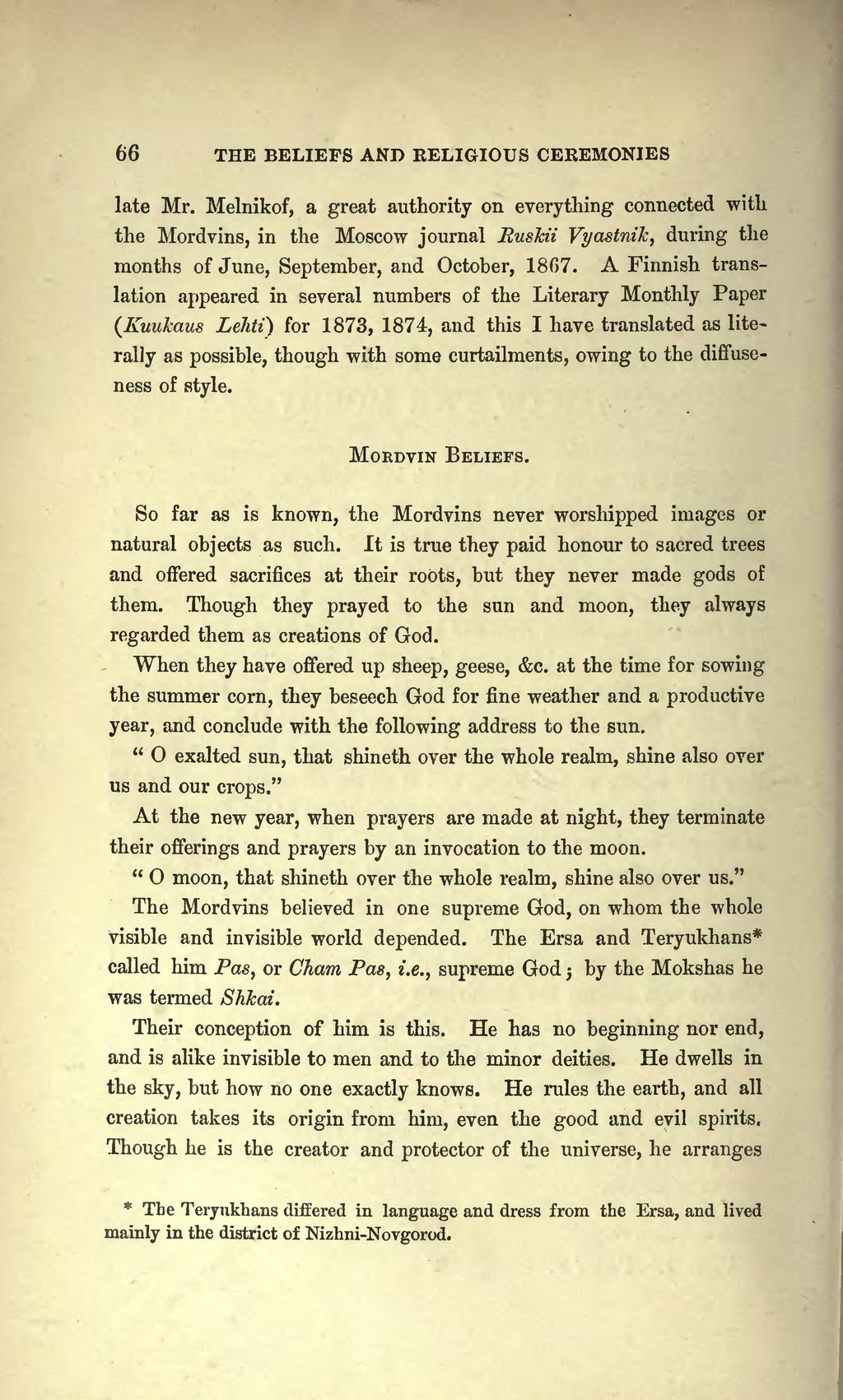late Mr. Melnikof, a great authority on everything connected with the Mordvins, in the Moscow journal Ruskii Vyastnik, during the months of June, September, and October, 1867. A Finnish translation appeared in several numbers of the Literary Monthly Paper (Kuukaus Lehti) for 1873, 1874, and this I have translated as literally as possible, though with some curtailments, owing to the diffuseness of style.
Mordvin Beliefs.
So far as is known, the Mordvins never worshipped images or natural objects as such. It is true they paid honour to sacred trees and offered sacrifices at their roots, but they never made gods of them. Though they prayed to the sun and moon, they always regarded them as creations of God.
When they have offered up sheep, geese, &c. at the time for sowing the summer corn, they beseech God for fine weather and a productive year, and conclude with the following address to the sun.
"O exalted sun, that shineth over the whole realm, shine also over us and our crops."
At the new year, when prayers are made at night, they terminate their offerings and prayers by an invocation to the moon.
"O moon, that shineth over the whole realm, shine also over us."
The Mordvins believed in one supreme God, on whom the whole visible and invisible world depended. The Ersa and Teryukhans[1] called him Pas, or Cham Pas, i.e., supreme God ; by the Mokshas he was termed Shkai.
Their conception of him is this. He has no beginning nor end, and is alike invisible to men and to the minor deities. He dwells in the sky, but how no one exactly knows. He rules the earth, and all creation takes its origin from him, even the good and evil spirits. Though he is the creator and protector of the universe, he arranges
- ↑ The Teryukhans differed in language and dress from the Ersa, and lived mainly in the district of Nizhni-Novgorod.
